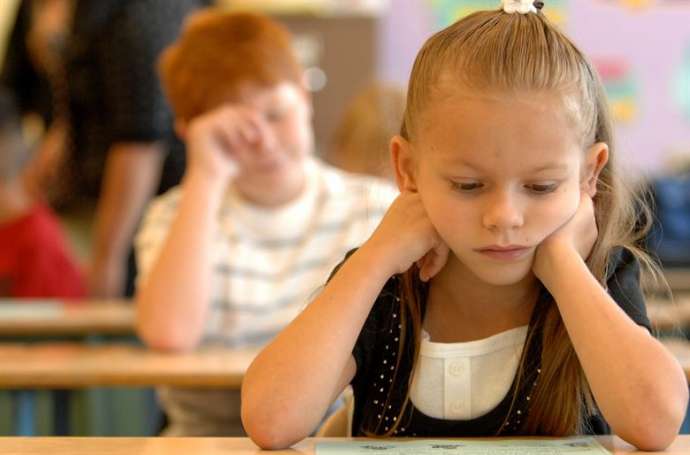STA, 21 May 2019 - Debates have been raging on for years about whether schoolwork is stressing children out. A study commissioned by the National Education Institute appears to show that Slovenian school children are exposed to stress, progressively so as they get older, but to a much lesser degree than widely assumed.
The study measured self-reported stress levels in over 8,300 children in sixth and eighth grade from 269 primary schools. Their average stress level was 37.5 on a 15-75 scale, well below the mean value.
"Children are telling us that things we find potentially tasking are not such a great burden for them," Tanja Rupnik Vec, one of the authors of the study, told the press on Tuesday.
Nevertheless, the study shows that stress increases with age, with eighth-grade children reporting higher stress levels than those in sixth grade.
Grading is the biggest source of stress together with the large number of subjects, whereas relations with teachers and other children, parental expectations and extracurricular activities are not a significant source of stress.
The study also examined how stress affects students. It found that negative consequences are rare on average, with the exception of fatigue, inability to concentrate and tension, which is two-thirds of students experience frequently.
Boys respond to stress with negative behaviour, while girls are more likely to react with insecurity, anxiety and loss of appetite.
Another major issue the study looked into was workload, especially homework, in the wake of a petition launched earlier this year that gained a lot of traction by proposing a radical reform including elimination of grades and homework.
The results show the vast majority of children, almost 56%, spending less than half an hour a day on homework, with another almost 30% doing homework for up to an hour. Almost two-thirds of students study less than an hour a day, except before tests.
Most children have been shown to have plenty of time for mobile devices, with almost 28% using them up to 30 minutes per day, 30% up to an hour a day and almost a quarter from one to two hours per day. Only a quarter of students use mobile devices to search for school-related information.
The survey was designed in conjunction with the Ministry of Education, which plans to use it as an input for a White Paper on education.







